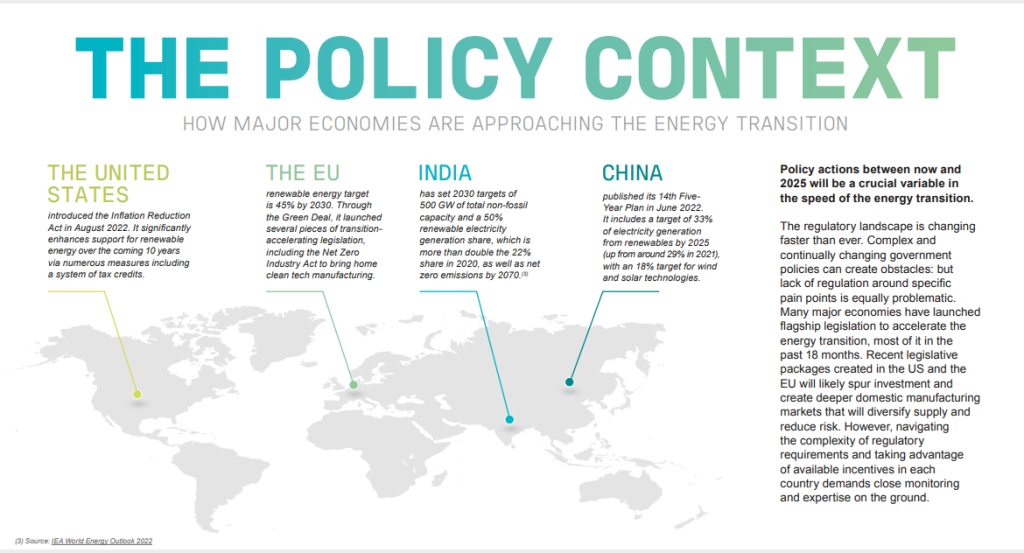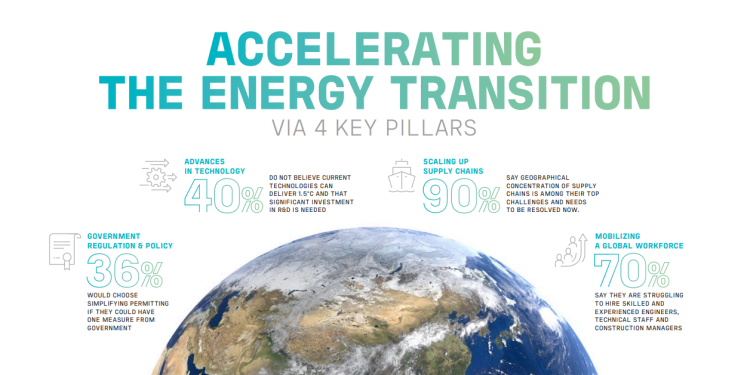The latest report by Bureau Veritas unveils insights on constraints the industry faces towards energy transition and emphasizes on the issue around inadequate policy.
The findings of the 2023 Global Energy Transition report: Accelerating the energy transition report are based on insight gathered from February to April 2023, from over 800 market experts and industry leaders. The respondents expressed the following points:
#1 The world is at a turning point
Respondents are truly divided when it comes to the ability of the world to transition at the required pace to reach the Paris 1.5°C target, and the contribution the energy sector will be able to make. If 81% agree that we will see a significant acceleration towards 2030, only 60% believe sufficient progress will be made in removing barriers in the short term.
#2 Removing barriers: change comes from the top
Respondents firmly believe that government policy is the number one factor driving the transition. Lack of policy support, constantly changing regulation and red tape are all obstacles to developing new assets. By contrast, positive policy signals effectively open access to, and encourage investment in, new technologies and manufacturing hubs.  #3 Supply chain transformation also poses risks
#3 Supply chain transformation also poses risks
Geographical concentration of raw materials and component manufacturing is the number one concern today, cited by 90% of respondents as a top 3 challenge. Governments in the US, Europe and India have launched ambitious plans to develop domestic manufacturing. But this exponential scale-up is a fierce uphill battle given the enormous installation targets. It will need to go hand-in-hand with thorough assessments of supplier quality, sustainability and resilience.
#4 Recruit, reskill, retrain—repeat
The scale-up in workforce required between now and 2030 will demand one of the biggest recruitment and training programs any industry has ever seen. Increased renewables deployment and manufacturing will require an additional 25 million people to join the energy industry. Companies are already feeling the pressure, citing recruitment of engineers and technical staff as an enormous challenge.
Looking ahead
As the report concludes, only 40% of industry leaders believe that today’s technology will enable us to reach net zero. Collaboration between industry players, throughout the value chain, will be essential to develop the more efficient renewable assets and energy storage systems the world needs.
For new technology to be adopted, it must be trusted. Customers want to know that technology is safe, reliable and performs to the level required. This means that developers have to secure the basics. Performance criteria including capacity and emissions profile are the factors on which innovations tend to be judged, but factors such as operational safety, quality and sustainability are equally important.





























































